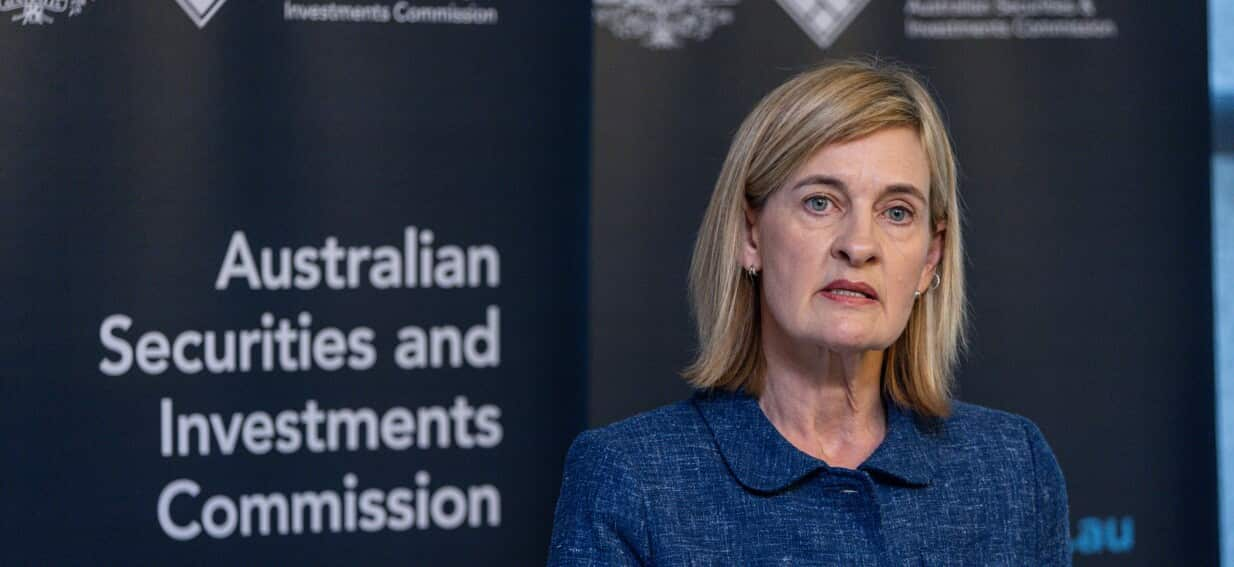Share this @internewscast.com

Australians have been warned to watch out for pushy salespeople pressuring them to make quick changes to their superannuation provider.
The Australian Securities and Investments Commission (ASIC) has warned Australians to be “on red alert for high-pressure sales tactics, clickbait advertising and promises of unrealistic returns”.
The corporate watchdog has warned of “industrial-scale” schemes encouraging people to move their retirement savings into complex and risky schemes.
‘Industrial scale’ schemes
ASIC deputy chair Sarah Court said the watchdog is “increasingly concerned” about individuals being tricked into putting retirement savings into “high-risk schemes”, adding that these are often property investments.
“The outcomes are certainly not what those consumers have been expecting,” she told ABC radio on Thursday.
“We are just increasingly seeing examples on an industrial scale.”
Some people were being told their superannuation balance may be insufficient for retirement before being encouraged to switch to high-risk investments, she said.
There are potential benefits to switching and consolidating your super, but that should only happen after careful consideration of the potential risk, ASIC has cautioned.
As of March 2025, financial comparison site Finder reports Australia had 24.7 million superannuation accounts from 112 fund providers, excluding those with fewer than seven members, holding a total of $4.2 trillion in assets.
It says 77 per cent of Australians have a super fund, and 5 per cent plan to open one in future.
‘Big red flags’
With the start of the new financial year, ASIC recommends that Australians be especially careful when reviewing their super funds.
“When it comes to sales calls about super switching, there are some big red flags people should be alert to — being asked to make a quick decision is one of the most obvious,” Court said.
“The initial salespeople can be very persuasive, often the underlying schemes are complex or not made clear to the consumer.”
According to ASIC, some of these red flags include high-pressure sales tactics, cold calls, offers to find and consolidate lost super for free, poor product disclosure, and unrealistic promises.
“It may be very difficult for even experienced investors to spot problems. Once you start on the path it can be hard to get off,” Court said.
“These calls don’t have the hallmarks of a typical scam. The caller will seemingly have your best interests at heart.
“Consumers should always ask questions about salespeople’s connections to funds, particularly in circumstances where a particular fund appears in the pitch, as there may be a commission arrangement.
“If you are unsure or are feeling pressured, just hang up.”











